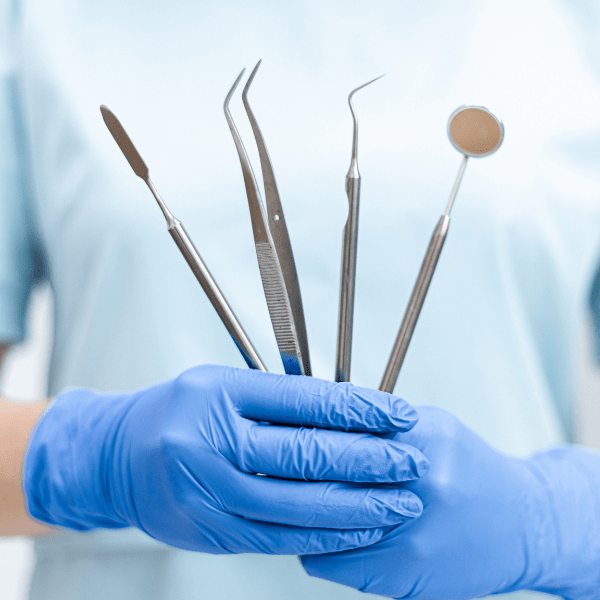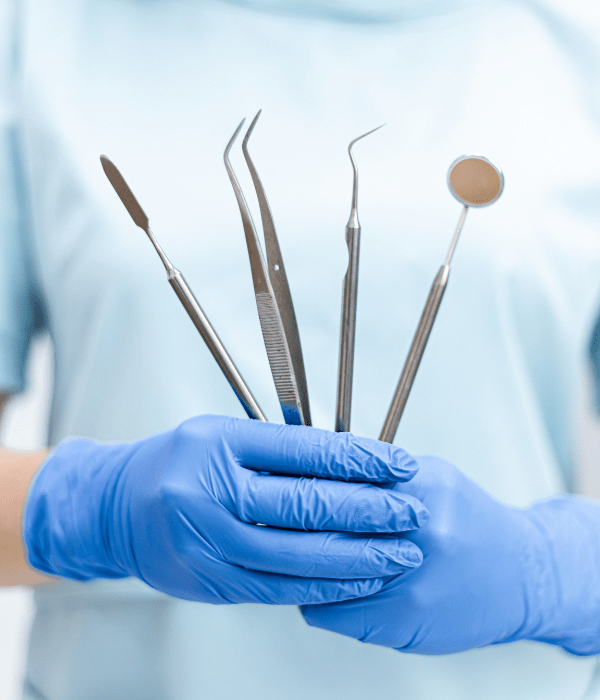Holistic Dentistry and the Oral Microbiome
Last week we were delighted to host Dr Samantha Jugdev, a General Dental Practitioner and also Homeopathic Education lead at NCIM, for our webinar on Holistic Dentistry and the role of the oral microbiome. When we think of dentists, we often picture teeth, fillings, check-ups and of course the dreaded drill! But dentistry, especially when viewed through an integrative lens, is about so much more than teeth. Your mouth is a gateway to your gut and a mirror of your overall health.
From the lips and tongue to the gums and throat, the oral cavity is the very start of our digestive system. Our mouth doesn’t just help us chew and speak, it also influences how the rest of the body functions. A healthy mouth is about communication, confidence, mental health, and even professional success. In fact, research shows just how much a healthy smile can impact how others perceive us.
And of course, our mouth is home to our oral microbiome, a bustling community of bacteria, viruses, and fungi. There are more than 700 species in total that live in our mouths and it’s the second most diverse microbiome in the body after the gut. Samantha reaffirmed that by looking after your oral microbiome, you’re not only protecting your smile but also supporting your heart, brain, gut, and immune system.
Most of the time, this community exists in balance. But if harmful bacteria takes over, we see problems like:
- Gingivitis (inflamed, bleeding gums)
- Periodontitis (deep infection around the teeth)
- Inflammation that can leak into the bloodstream, affecting the whole body
Mouth–Body Connections
Science is increasingly uncovering links between oral health and wider systemic health conditions such as:
- Heart health: People with gum disease are more likely to develop cardiovascular problems.
- Diabetes: Gum disease and type 2 diabetes feed each other in a two-way relationship, managing one can improve the other.
- Alzheimer’s disease: Chronic gum inflammation may play a role in neurodegeneration and is being explored as a risk factor.
- Mental health: Certain oral bacteria are associated with stress and mood disorders.
Lifestyle and the Oral Microbiome
Brushing and flossing are essential, but they only account for about 20% of what protects your gums and teeth. The other 80% comes from lifestyle:
- Nutrition: Whole foods, fresh fruit and veg, healthy proteins, and reduced processed sugars support both oral and gut health.
- Sleep: Poor sleep (or mouth breathing and snoring) can worsen oral conditions and increase systemic inflammation.
- Exercise: Improves circulation and immune function, supporting oral tissues.
- Stress management: Chronic stress disrupts both the oral microbiome and immune resilience.
- Smoking & vaping: Strongly linked to gum disease and delayed healing.
Integrative Approaches to Oral Care
At NCIM, we prefer the term integrative dentistry rather than holistic – bringing together conventional care with evidence-based lifestyle and natural approaches. Here are some tools and considerations:
- Toothbrushes & interdental cleaning: Electric brushes are effective, but consistency matters most. Cleaning between teeth with floss or brushes is vital.
- Tongue scraping: Helps reduce bacterial build-up and bad breath.
- Toothpaste choices: Fluoride remains protective for those at higher risk of decay, though natural alternatives (such as hydroxyapatite or herbal blends) can work well for others. Avoiding unnecessary chemicals like sodium lauryl sulfate can benefit sensitive mouths.
- Propolis: A natural bee product with antibacterial and antifungal properties that can help soothe ulcers and support healing.
- Oil pulling: There is research to show if done correctly, oil pulling can reduce plaque and can see a reduction with bleeding gums.
- Oral probiotics: Certain strains, such as L. reuteri, show promise for improving gum health and reducing reliance on antibiotics.
Many common medications can also affect oral health, often by causing dry mouth (xerostomia) or gum changes. Examples include blood pressure drugs (like amlodipine), diabetes drugs (such as Ozempic), and antidepressants. Awareness and regular dental reviews can help manage these side effects.
Can We Change the Oral Microbiome?
The oral microbiome is resilient and individual, making it hard to change completely. But we can support balance through:
- Reducing harmful bacterial load with brushing, flossing, and professional cleanings
- Supporting whole-body health with nutrition, sleep, and stress management
- Using targeted products (like probiotics or propolis) when needed
Integrative dentistry isn’t about extremes, it’s about combining the best of conventional and lifestyle-based care to keep both the mouth and the body in balance. Looking after our teeth and in particular our oral microbiome, isn’t just about our cosmetic health – it’s for our systemic health too and the importance of which should not be undervalued.
If you would like to watch the webinar with Samantha – do join our membership where you can watch our back catalogue of webinars, plus our conferences, resources and discounts. For incredible value!
SIH – MEMBERSHIP – NCIM – National Centre for Integrative Medicine
Dr Elizabeth Thompson


